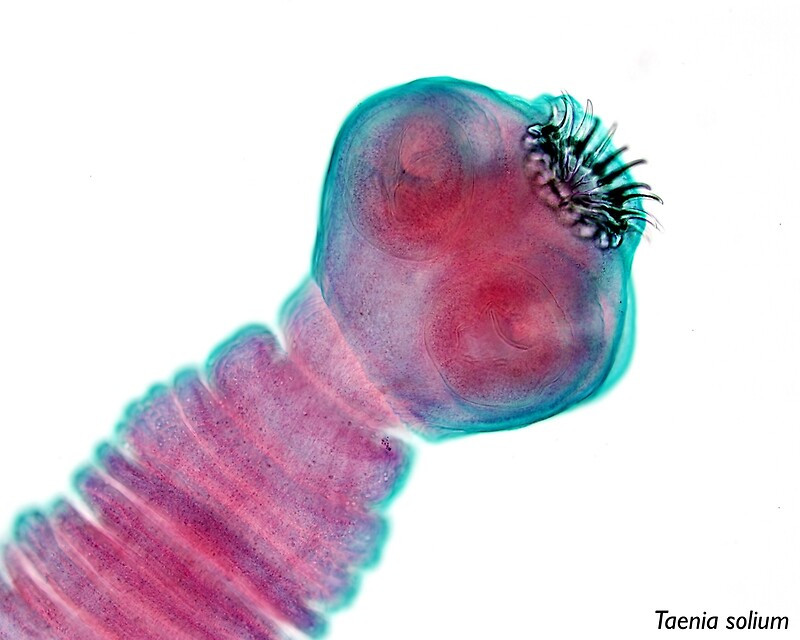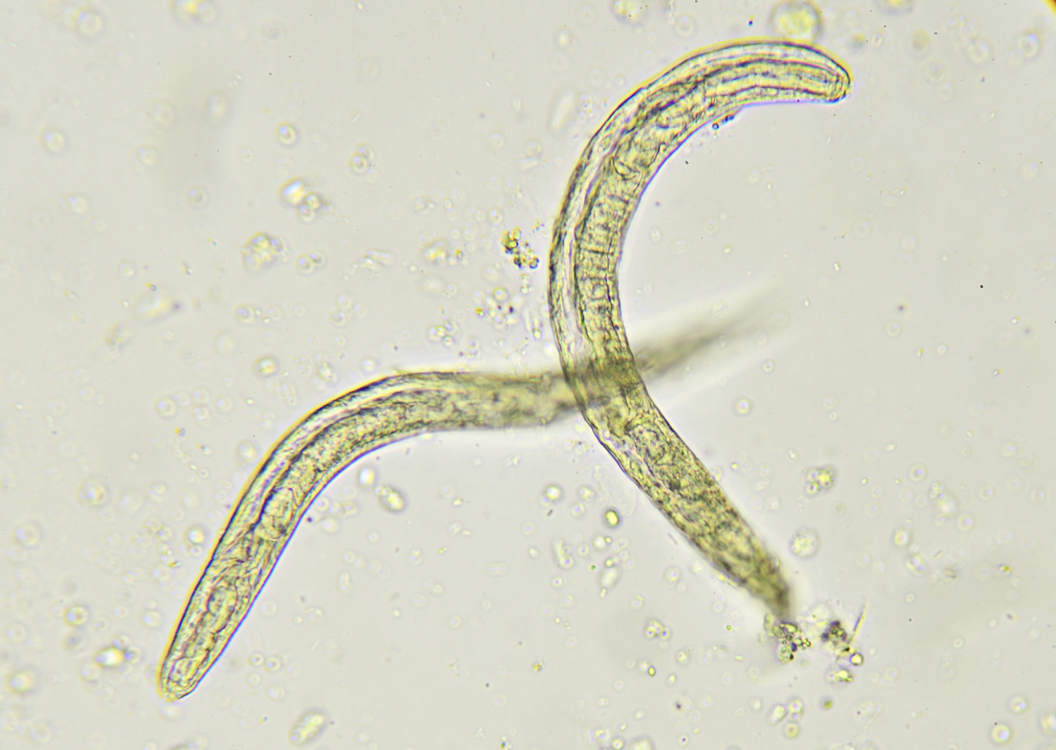Definition
Oxyuriasis is an intestinal infection caused by the pinworm Oxyuris vermicularis. These small, whitish worms are less than 2 cm in length. According to the Centers for Disease Control and Prevention (CDC), pinworm infections are among the most common intestinal parasitic infections worldwide, affecting approximately 1 billion individuals. Oxyuriasis is highly contagious and predominantly occurs in school-aged children between 5 and 10 years old, individuals living in dormitories, and those regularly coming into contact with these groups. The primary treatment for oxyuriasis involves the use of antiparasitic medications, although recurrence is possible. Serious complications and long-term effects are rare in cases of oxyuriasis.
Causes
Oxyuriasis is caused by the pinworm known as Oxyuris vermicularis. This slender, thread-like, white worm measures 6-13 mm in length and resides in the human colon and rectum. The infection is transmitted through the fecal-oral route when individuals ingest pinworm eggs.
The transmission process begins with female pinworms laying eggs around the infected anus. When the individual scratches or touches their anus, the eggs can adhere to their nails and fingers. These eggs may then be transferred to various surfaces or other individuals who may ingest them by touching their mouths. Once ingested, the eggs enter the digestive system and settle in the intestine. After hatching, female pinworms move to the anus to lay more eggs, perpetuating the cycle of infection.
It is important to note that pinworm eggs can persist for 2-3 weeks on fingers, under nails, and on surfaces such as bed sheets, clothes, or toilet seats. These eggs are microscopic, making them difficult to detect, and people may unknowingly swallow or inhale them, contributing to the ease of pinworm transmission. In addition to direct contact with an infected person, transmission can occur through contaminated bedding or underwear, inhalation of airborne eggs, and contact with cats and dogs that may carry the eggs on their fur.
Risk Factors
Oxyuriasis can affect individuals of all ages and occur in various geographical conditions. The microscopic nature of pinworms makes avoiding contact with infected individuals or contaminated areas challenging. While anyone can be susceptible to oxyuriasis, certain groups are at a higher risk of infection. These include:
- Kids in daycare, kindergarten, or elementary school
- Family members or caretakers of the infected
- People who live in dorms
- Kids and adults who do not practice proper hand hygiene and are not careful before eating
- Kids who have a habit of sucking their thumb
Symptoms
In some cases, individuals with oxyuriasis may not exhibit any symptoms. However, suspicion of pinworm infection may arise if you or others experience the following symptoms:
- Itch in the anus area, especially at night
- Lack of sleep due to itch or discomfort of the anus
- Pain, rash, or skin irritation around the anus
- Pinworms visible in the anus area or stool: In some cases, pinworms may be visible around the anus or in the stool.
- Discomfort or intermittent pain in the abdomen
- For females, vaginal discharge and vaginal itch\
Diagnosis
To diagnose oxyuriasis, a medical interview is conducted to gather information about the patient's symptoms and potential risk factors. Following this, a physical examination is performed to assess the area around the anus. Identification of pinworms or eggs around the anus or in feces is crucial for diagnosis, and a common method used is the tape test.
The tape test involves taking a piece of transparent tape and pressing the sticky side against the skin around the anus. This is typically done upon waking up, before using the toilet, taking a bath, or changing clothes. The tape collects any eggs present in the area. Subsequently, the tape is examined under a microscope to check for the presence of pinworm eggs. This examination may be repeated for three consecutive days to increase the chances of finding eggs.
Management
Oxyuriasis is effectively managed with oral anti-worm medications such as Pirantel Pamoat, Albendazole, or Mebendazole. It is crucial to treat not only the infected individual but also all people living close to prevent the recurrence of infection. Caretakers and individuals in close contact with the infected person should also undergo treatment to ensure comprehensive management and reduce the risk of spreading the eggs to others.
Complications
Pinworm infection typically does not lead to serious complications in most individuals. However, in rare cases and if left untreated, oxyuriasis can result in urinary tract infections (UTIs) in females. The worms may travel from the anus to the vagina, affecting the reproductive organs such as the womb, fallopian tubes, and other structures in the pelvic region. This migration can lead to additional infections, including inflammation in the vagina and endometritis, which is inflammation of the lining of the womb. Additionally, a large population of pinworms may cause abdominal pain and contribute to weight loss by affecting the body's nutrient absorption.
Prevention
Preventing pinworm infection and minimizing the risk of recurrence involves adopting good hygiene practices, especially in households with children. Key preventive measures include:
- Wash hands thoroughly with running water and soap before eating.
- Change clothes daily and ensure regular washing.
- Keep nails clean and trimmed short.
- Encourage individuals who are infected to refrain from scratching the anal area.
- Launder bedding, towels, and clothes in hot water and dry them in sunlight.
- Avoid shaking clothes and bedsheets to prevent the spread of eggs in the air.
- Discourage communal baths for children to prevent the spread of eggs in bathwater.
- Clean and disinfect surfaces that may be contaminated, including toys, floors, tables, and toilet seats.
- Vacuum carpets thoroughly, paying close attention to cleanliness.
When to see a doctor?
If you or your children experience persistent itching in the anal area, especially worsening at night, it is advisable to consult a doctor. Discuss any recurring pinworm infections with the doctor to explore appropriate diagnostic and treatment options.
Looking for more information about other diseases? Check here, yes!
- dr Hanifa Rahma
CDC. Pinworm. (2020). Retrieved 21 Januari 2022, from https://www.cdc.gov/parasites/pinworm/
Giorgi, Anna. Pinworm Infection. (2021). Retrieved 21 Januari 2022, from https://www.healthline.com/health/pinworms
Nazario, Brunilda. Pinworm Infection. (2020). Retrieved 21 Januari 2022, from https://www.webmd.com/a-to-z-guides/pinworms-infection
Pinworms. (2021). Retrieved 21 Januari 2022, from https://my.clevelandclinic.org/health/diseases/21137-pinworms
Pinworm Infection. (2020). Retrieved 21 Januari 2022, from https://www.mayoclinic.org/diseases-conditions/pinworm/symptoms-causes/syc-20376382












